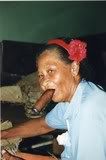| View previous topic :: View next topic |
| Author |
Message |
afsjesse

Joined: 23 Sep 2007
Location: Kickin' it in 'Kato town.
|
 Posted: Wed Nov 19, 2008 5:04 pm Post subject: Why cant the K Govt. peg the won to the dollar? Posted: Wed Nov 19, 2008 5:04 pm Post subject: Why cant the K Govt. peg the won to the dollar? |
 |
|
Stupid question I know... but for you amateur economists maybe you have an answer.
In 2001 I studied abroad in Argentina. At that time 1 Peso got you 1 USD. The Argentine government pegged it somehow.. I dont know how it worked. Of course shortly later the eoncomy collapsed and things went into panic mode for awhile. Today it is doing much better with 3 pesos to 1 dollar respectively.
Argentina pegged its currency for almost a decade I believe and I dont know if this led to the collapse or not.
So, if an advanced but still third world country can peg its currency, why can;t Korea with all of its foreign reserves do the same? Whats the explanation for this, pros and cons?
Take your shot! |
|
| Back to top |
|
 |
afsjesse

Joined: 23 Sep 2007
Location: Kickin' it in 'Kato town.
|
 Posted: Wed Nov 19, 2008 5:16 pm Post subject: Posted: Wed Nov 19, 2008 5:16 pm Post subject: |
 |
|
Or how about just raising it to a modest level of 1200-1300? If the government is in support of a strong won, it would seem alot better to do something like this than to waste all those billions of dollars stimulating the economy and floating banks.
In fact now that I think of it, Hong Kong has its currency tied to the USD.... |
|
| Back to top |
|
 |
jvalmer

Joined: 06 Jun 2003
|
 Posted: Wed Nov 19, 2008 5:26 pm Post subject: Posted: Wed Nov 19, 2008 5:26 pm Post subject: |
 |
|
| The won was once pegged to the USD. One of the usual conditions to get an IMF loan is to remove any fixed currency exchange rates. Korea got a 50 billion USD bailout way back in 1997. Not sure exactly when the peg was removed though. |
|
| Back to top |
|
 |
poet13
Joined: 22 Jan 2006
Location: Just over there....throwing lemons.
|
 Posted: Wed Nov 19, 2008 6:59 pm Post subject: Posted: Wed Nov 19, 2008 6:59 pm Post subject: |
 |
|
| Yes, please reset it to 50 won= 1 dollar. |
|
| Back to top |
|
 |
mayorgc
Joined: 19 Oct 2008
|
 Posted: Wed Nov 19, 2008 7:43 pm Post subject: Posted: Wed Nov 19, 2008 7:43 pm Post subject: |
 |
|
i did my BA in economics
i'm no expert, but, pegging your currency to the dollar is usually quite difficult and it opens up your domestic investments to attack by outside forces. it causes a lot of strain on the national bank to keep things sane. ie. interest rates and inflation rates.
there's a whole sh!tload of details that i could get into, but i already graduated and i'm not keen on opening up my notes again.
basically, it causes more grief than it does good. I know china pegs to the u.s. but i think they get away with it because of their govt structure (i'm actually not sure, someone will have to clarify) |
|
| Back to top |
|
 |
weatherman

Joined: 14 Jan 2003
Location: Korea
|
 Posted: Wed Nov 19, 2008 8:14 pm Post subject: Posted: Wed Nov 19, 2008 8:14 pm Post subject: |
 |
|
| jvalmer wrote: |
| The won was once pegged to the USD. One of the usual conditions to get an IMF loan is to remove any fixed currency exchange rates. Korea got a 50 billion USD bailout way back in 1997. Not sure exactly when the peg was removed though. |
If there was a peg, it was dropped long before 1997. |
|
| Back to top |
|
 |
wanderingross
Joined: 13 Oct 2008
Location: Incheon
|
 Posted: Wed Nov 19, 2008 9:31 pm Post subject: Posted: Wed Nov 19, 2008 9:31 pm Post subject: |
 |
|
From what I can remember a currency is pegged by the governemnt using its foreign currency reserves to moderate the exchange rates by buying and selling its own currency in tandom with market demand.
That's one of the reasons that China holds so much American debt (T-bills) that they can cash in to hold their currency (I think...).
Korea is attempting to moderate their rates a bit, but to do so completely would not only exhaust their (smaller) reserves it would also draw major heat from free trade organizations and proponents around the world. |
|
| Back to top |
|
 |
bogey666

Joined: 17 Mar 2008
Location: Korea, the ass free zone
|
 Posted: Wed Nov 19, 2008 10:27 pm Post subject: Re: Why cant the K Govt. peg the won to the dollar? Posted: Wed Nov 19, 2008 10:27 pm Post subject: Re: Why cant the K Govt. peg the won to the dollar? |
 |
|
| afsjesse wrote: |
Stupid question I know... but for you amateur economists maybe you have an answer.
In 2001 I studied abroad in Argentina. At that time 1 Peso got you 1 USD. The Argentine government pegged it somehow.. I dont know how it worked. Of course shortly later the eoncomy collapsed and things went into panic mode for awhile. Today it is doing much better with 3 pesos to 1 dollar respectively.
Argentina pegged its currency for almost a decade I believe and I dont know if this led to the collapse or not.
So, if an advanced but still third world country can peg its currency, why can;t Korea with all of its foreign reserves do the same? Whats the explanation for this, pros and cons?
Take your shot! |
the collapse of Argentina was VERY much tied into its dollar equivalent currency board. Planes used to be full of Argentines flying to Miami to shop on the weekends.
They were spending money they didn't have, and ultimately the govt deficits added up and the chickens came home to roost.
very difficult to peg your corrency to something that isn't yours.
You can't print it.. you can't control it.. and you have no role to play with critical levers like interest rate policy.
sometimes a peg can be great, but with the good comes the bad, in other times it can awful.
good example would be Ireland's adoption of the euro and entry into EU. |
|
| Back to top |
|
 |
call_the_shots

Joined: 10 Oct 2008
|
 Posted: Wed Nov 19, 2008 10:49 pm Post subject: Posted: Wed Nov 19, 2008 10:49 pm Post subject: |
 |
|
I remember very little from Macroeconomics class, but I do recall a concept called the "Impossible Trinity" (also known as the Unholy Trinity, the Trilemma, and maybe a few other names). The Impossible Trinity is about three conditions:
1) Fixed exchange rate
2) Free flow of capital across borders
3) Independent monetary policy.
A country can choose two out of three, but it's impossible to have all three. So if Korea wants to change to a fixed exchange rate, they must either give up having an independent monetary policy (which means losing the ability to adjust interest rates to fight inflation or recession), or they must restrict capital mobility (like China). |
|
| Back to top |
|
 |
|

